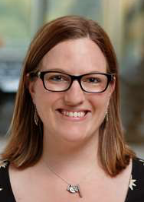Perspective
Global Engagement Elicits the 3Cs
Stephen Hargarten, MD, MPH and Tifany Frazer, MPH – MCW Office of Global Health
In this essay, Dr. Hargarten and Ms. Frazer share how the missions of MCW, the Kern Institute, and the Office of Global Health overlap, and celebrate how students – taken outside of their normal cultural contexts to experience medical care in low- and middle-income countries – return with new appreciations for the value of competence, character, and caring in medicine …
A MCW medical student recently reflected on a positive experience with a mentor:
“We can easily forget we are treating a person and not just the disease. Despite feeling like we know best, we sometimes forget to include patients in the decision-making process. The doctor and patient collaborated to help develop their own healing systems outside from dependency on medications. Medications for chronic pain were replaced with relationships.”
As we celebrate MCW’s 10th Annual Global Health Week, we are reminded that global engagement opportunities expose our students to new healthcare practices, build their character by challenging their personal beliefs, and stimulates the development of innovative solutions for patient care. As one trainee reflected, after observing that access to technology is restricted in low resourced settings, “You have to use and rely on your clinical skills and judgment. You likely become a better steward of resources, and arguably a better clinician.”
A report by the Lancet Global Independent Commission on “The Education of Health Professionals for the 21st Century” asked academic institutions to rethink professional education reforms in our century. It stated “the extraordinary pace of global change is stretching the knowledge, skills, and values of all health professionals.” The Commission called for “more agile and rapid adaptation of core competencies based on transnational, multi-professional perspectives to serve the needs of individuals and populations” and sought transformative education to develop leaders for the 21st century.
The transformational gift of Robert D. and Patricia E. Kern validates the belief that the healthcare environment of the 21st century is a global one, encompassing everything from engaging with researchers worldwide to providing clinical care in culturally diverse local communities. MCW trainees’ reflections following their global health research and clinical rotations are reviewed and demonstrate the following themes: perspective, awareness, ambivalence, and practice. A trainee reflected:
"The list of health disparities I witnessed ultimately would take me hours to describe. As a physician, this experience forced me to alter my expectations and become more flexible in regards to medication compliance, progression of disease processes, and utilization of diagnostics and treatments given these limitations in resources."
This student experience parallels the Kern Institute’s national movement and vision to transform medical education along the continuum. Engagement with diverse communities, whether local or international, reflects the current and future common realities of healthcare and humanity and what type of doctor is needed for the future. Another trainee reflected,
“I am certain I have been impacted in more ways than I can truly describe. I know that as a physician and even more so as a human being I have been undeniably transformed."
Similar to the Kern Institute’s advancement of the Triple Aim of Health Care through its “Triple Aim for Medical Education,” faculty and staff active in global health efforts facilitate stronger connections to become caring, competent, and compassionate physician leaders committed to improving population health and enhancing patient outcomes, locally and globally. Our trainees benefit from experiences in low, middle, and high resourced settings, that compare and contrast health and health care in a variety of complex socioeconomic, political, and cultural environments. As the Kern Institute seeks to develop innovative models to optimize health system performance, physicians who are more comfortable “using a truly globalized approach (integrating therapies and treatment from a variety of resourced settings and cultures)” are more likely to improve health through enhanced care at a better value.
Immersion in clinically and culturally diverse settings allows medical students and faculty to examine their preconceived notions of medicine and their roles as healers. The AAMC posted a story on their website indicating that “global health curriculum and electives provide lessons in patient advocacy, health equity, and humility.” A medical student quoted in the article reflected on a global health rotation in a low resource environment, “Working in this environment requires self-awareness, strength, and humility to accept and then overcome challenges to one’s way of being, thinking, and perceiving the world.” This parallels the Kern Institute’s expected outcome to cultivate physicians with the attributes of “fairness, honesty, kindness, leadership, and teamwork.”
Most of the institutions collaborating in the Kern Institute are, with MCW, fellow members in the Consortium of Universities for Global Health (CUGH) including UW-Madison, Mayo, UCSF, Vanderbilt, and Dartmouth. Our connections to these institutions through CUGH would provide a ready-made platform for us to broaden the reach of Kern innovations, testing our ability to sustain and replicate these initiatives through a global health lens.
As a medical student stated,
“As a future provider, this experience has expanded my character and ability to care for diverse patients in several ways. Foremost, it re-enforced that the basic principles of medical care are present across all cultures and peoples. Physicians have a responsibility to help alleviate physical and emotion suffering in all those that seek our care, and to do this, we must establish trust, and show empathy."
As the Kern Institute’s leadership continues to seek broad input on what this transformational gift can impact, we know that continued investment in global health-focused educational offerings is necessary for creating compassionate, caring, competent physician leaders with strong resilient character for the 21st century.
Stephen Hargarten, MD MPH is a Professor of Emergency Medicine, Founding Director of the Comprehensive Injury Center, and Associate Dean of Global Health at MCW.
Tifany Frazer, MPH is the Program Manager of the MCW Office of Global Health.







